10 TIPS TO IMPROVE FOOD METABOLISM
16Jun
CONTROL OVER FOOD IS BIBLICAL
The apostle Paul said in his letter to the Romans (14:17): "For the kingdom of God is not food and drink, but righteousness and peace and joy in the Holy Spirit." And further: "Everything is lawful for me, but not everything is helpful. Everything is lawful for me, but I will not be mastered by anything" (1 Corinthians 6:12).

These verses explain the need to eat enough to sustain us and exclude all foods that cause us harm. We must not become addicted and allow ourselves to be enslaved by the desires of the flesh, because what is in favor of the flesh goes against the spirit and the will of God.
Let's get to the tips:
1st) Drink a glass of water when you wake up

As soon as you wake up, thank God for another day and drink a glass of water (200 ml), preferably at room temperature and on an empty stomach. This will replace the liquid lost during sleep and wake up your digestive system for the first meal of the day.
2nd) Do not drink drinks during meals
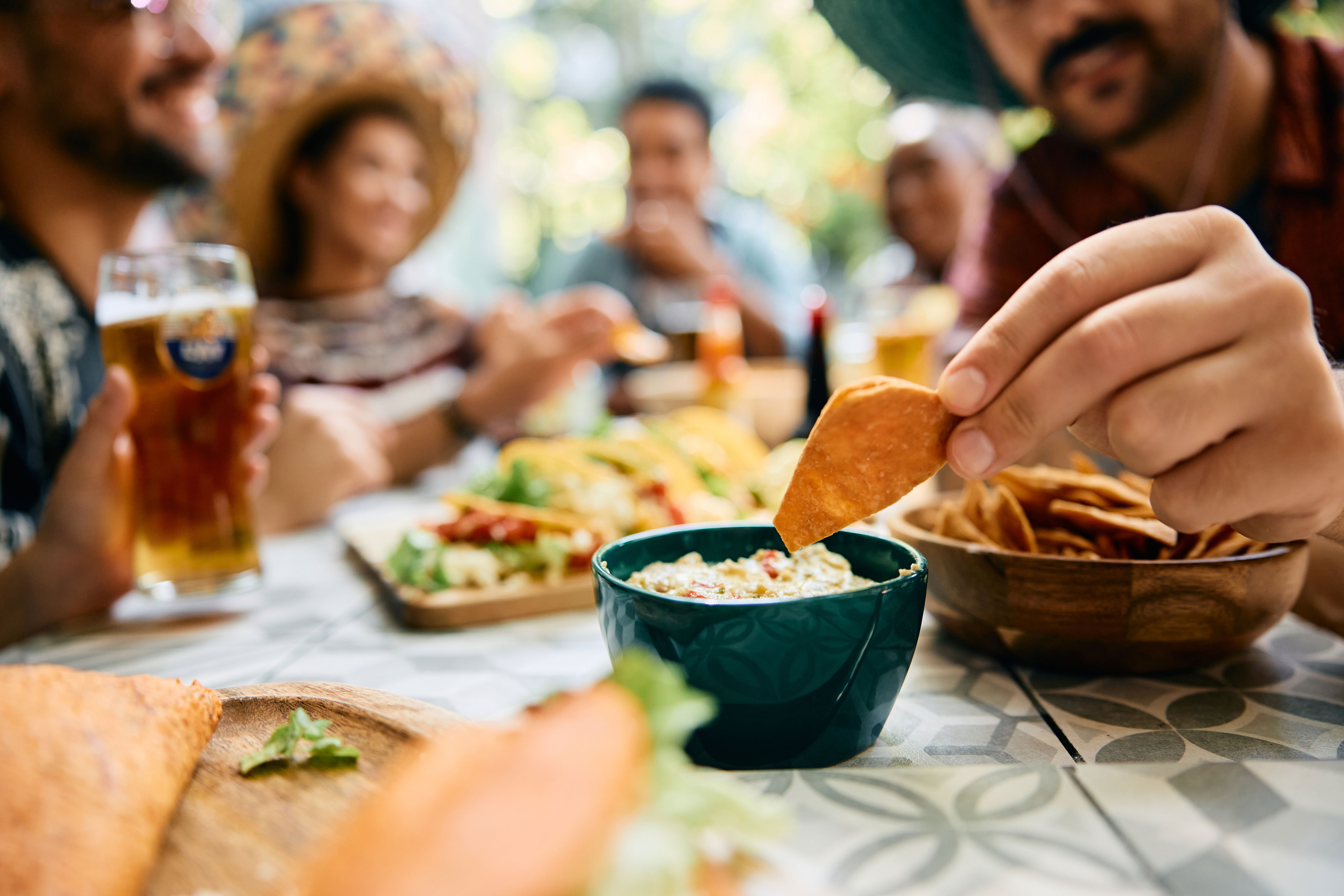 Any liquid (water, juice or soda) will disrupt digestion. Drinks dilute and weaken the gastric juice in the stomach, responsible for preparing the food bolus (chyme) for the intestines (small and large), where most of the absorption of nutrients occurs and the metabolization of food is completed.
Any liquid (water, juice or soda) will disrupt digestion. Drinks dilute and weaken the gastric juice in the stomach, responsible for preparing the food bolus (chyme) for the intestines (small and large), where most of the absorption of nutrients occurs and the metabolization of food is completed.3rd) Plan your fluid intake between meals
 Hydration is extremely important for the human body, so drink plenty of fluids between meals. It is advisable to consume beverages up to one hour before lunch and dinner and at least three hours after. Most foods remain in the stomach for between two and four hours, which is necessary for the chyme to reach the intestine ready to be digested.
Hydration is extremely important for the human body, so drink plenty of fluids between meals. It is advisable to consume beverages up to one hour before lunch and dinner and at least three hours after. Most foods remain in the stomach for between two and four hours, which is necessary for the chyme to reach the intestine ready to be digested.4th) Forget dessert
 Desserts (cakes, sweets and ice cream) almost always contain ingredients such as milk, dough and fruit, which ferment very quickly. The problem is that the dessert will wait in the stomach for the food to be processed first. This waiting time accelerates the fermentation of these ingredients, causing gas, pain and discomfort, ruining the meal. Eat these delicacies before the main meals.
Desserts (cakes, sweets and ice cream) almost always contain ingredients such as milk, dough and fruit, which ferment very quickly. The problem is that the dessert will wait in the stomach for the food to be processed first. This waiting time accelerates the fermentation of these ingredients, causing gas, pain and discomfort, ruining the meal. Eat these delicacies before the main meals.5th) Eat a salad before the main course
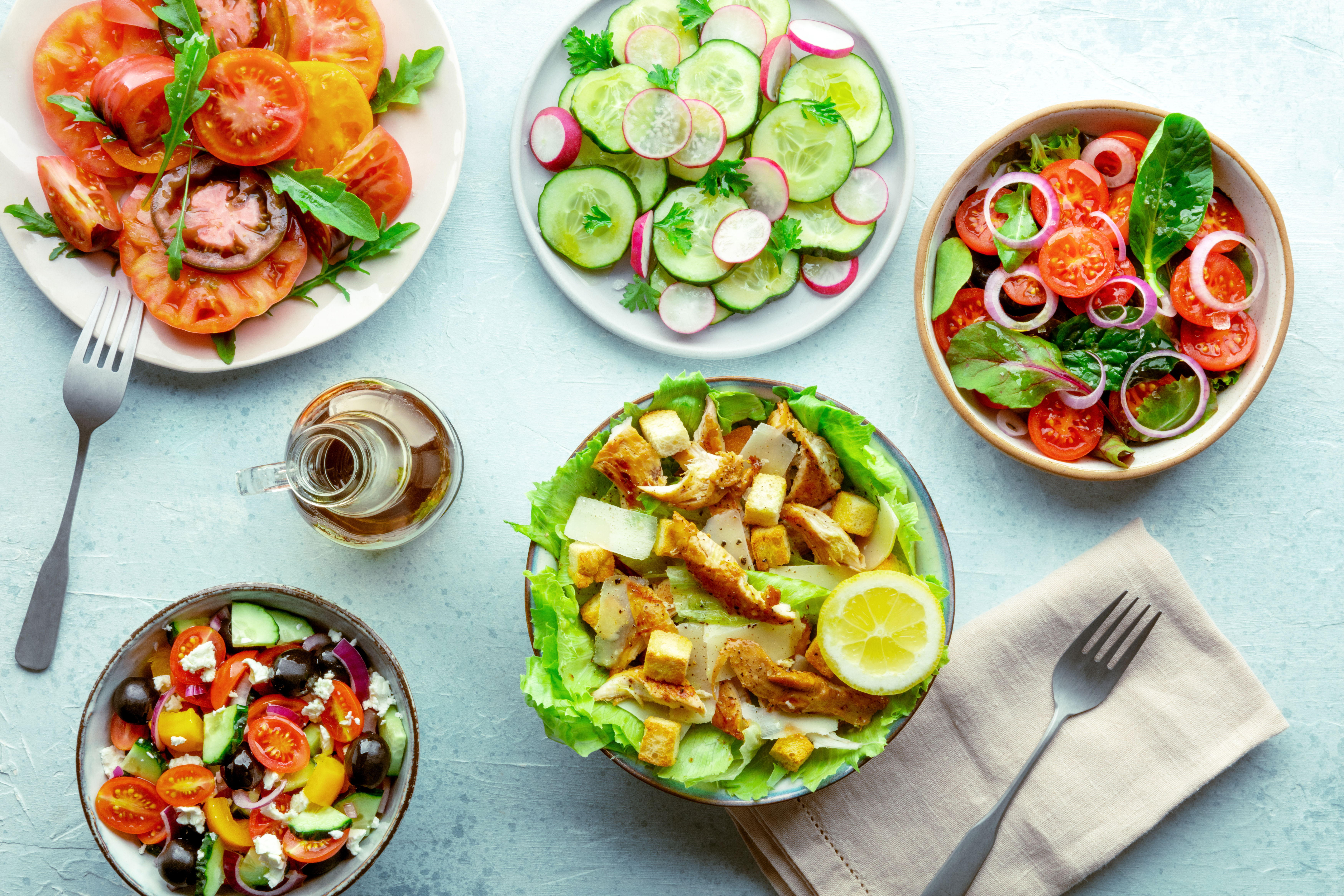 Fruits, vegetables, and greens fill the body up faster with their fiber, minerals, and vitamins, preventing you from overeating carbohydrates, proteins, and meats.
Fruits, vegetables, and greens fill the body up faster with their fiber, minerals, and vitamins, preventing you from overeating carbohydrates, proteins, and meats.6th) Pay special attention to your intake of liquid fat
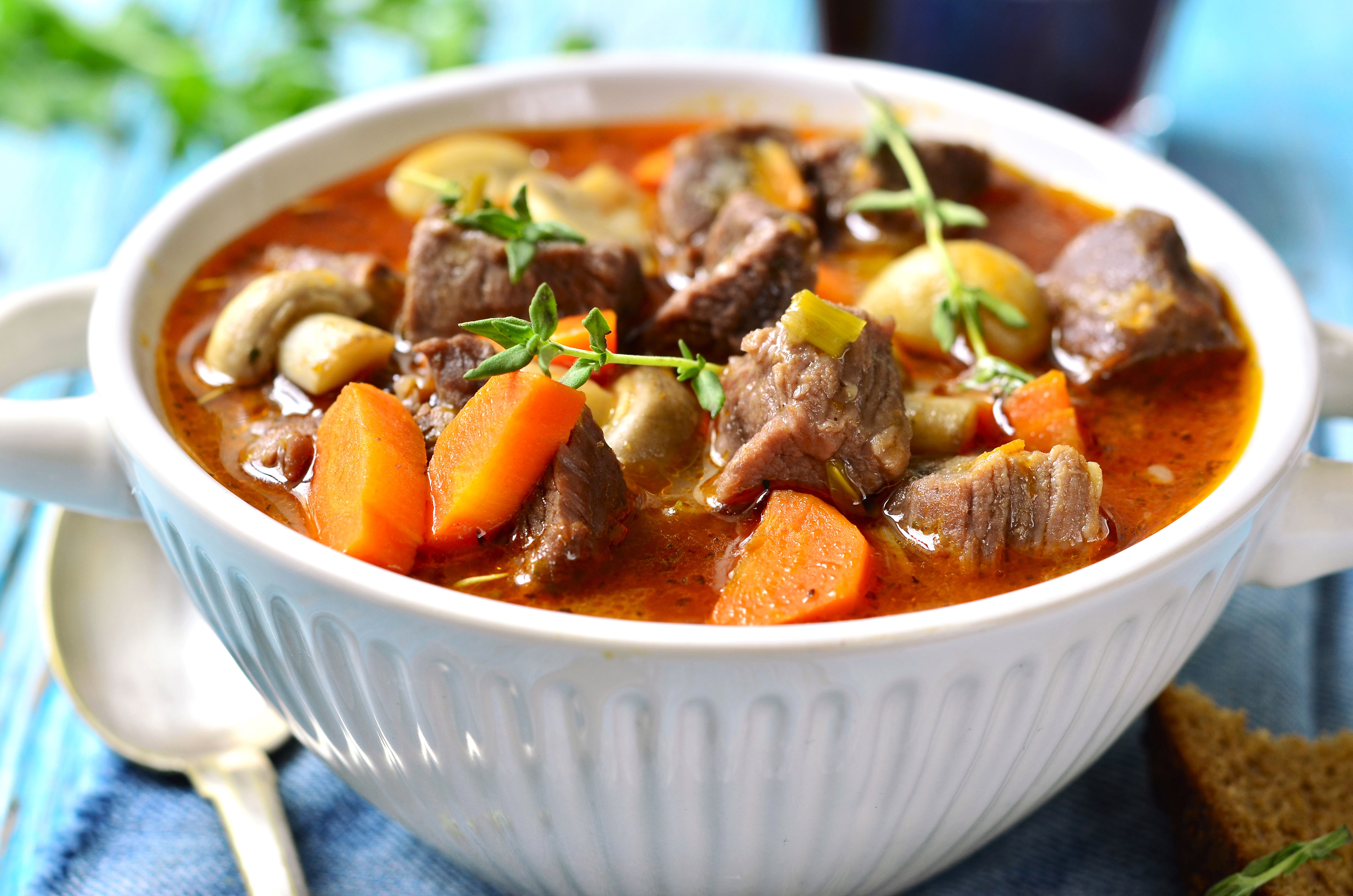 Dishes containing broths should receive extra attention in terms of digestion time. The detail is that a large part of the fat, solid at room temperature, is melted during the cooking of meat and passes into the broth. Inside the stomach, this lipid substance solidifies again (a process accelerated by cold drinks) and causes problems with metabolism.
Dishes containing broths should receive extra attention in terms of digestion time. The detail is that a large part of the fat, solid at room temperature, is melted during the cooking of meat and passes into the broth. Inside the stomach, this lipid substance solidifies again (a process accelerated by cold drinks) and causes problems with metabolism.7th) Don't rest right after eating
 A body in a diagonal or horizontal position prevents digestive substances from reaching the entire food bolus and hinders digestion. It also allows gastroesophageal reflux, which, because the esophagus is not structured to handle acidic substances like the stomach, can lead to cancer.
A body in a diagonal or horizontal position prevents digestive substances from reaching the entire food bolus and hinders digestion. It also allows gastroesophageal reflux, which, because the esophagus is not structured to handle acidic substances like the stomach, can lead to cancer.8th) Respect your body's limits
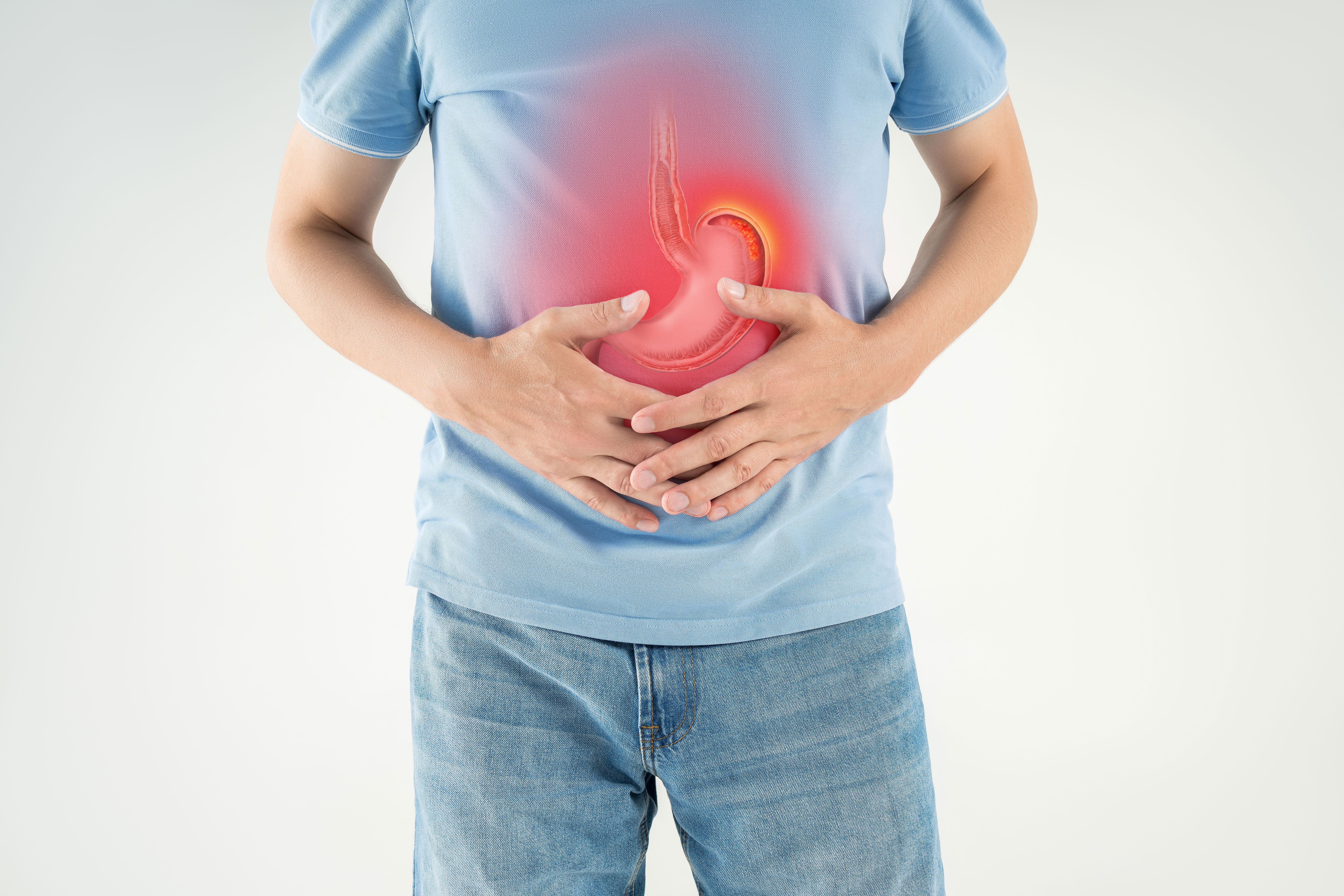 The empty stomach has a capacity of 50 milliliters, and during a meal it can hold up to 1 liter of food. However, it can expand up to 4 liters. Some cases of diabetes, high blood pressure, strokes and heart attacks have their origins in binge eating, the act of eating large amounts of food quickly, even when you are not hungry.
The empty stomach has a capacity of 50 milliliters, and during a meal it can hold up to 1 liter of food. However, it can expand up to 4 liters. Some cases of diabetes, high blood pressure, strokes and heart attacks have their origins in binge eating, the act of eating large amounts of food quickly, even when you are not hungry.9th) Go on a diet
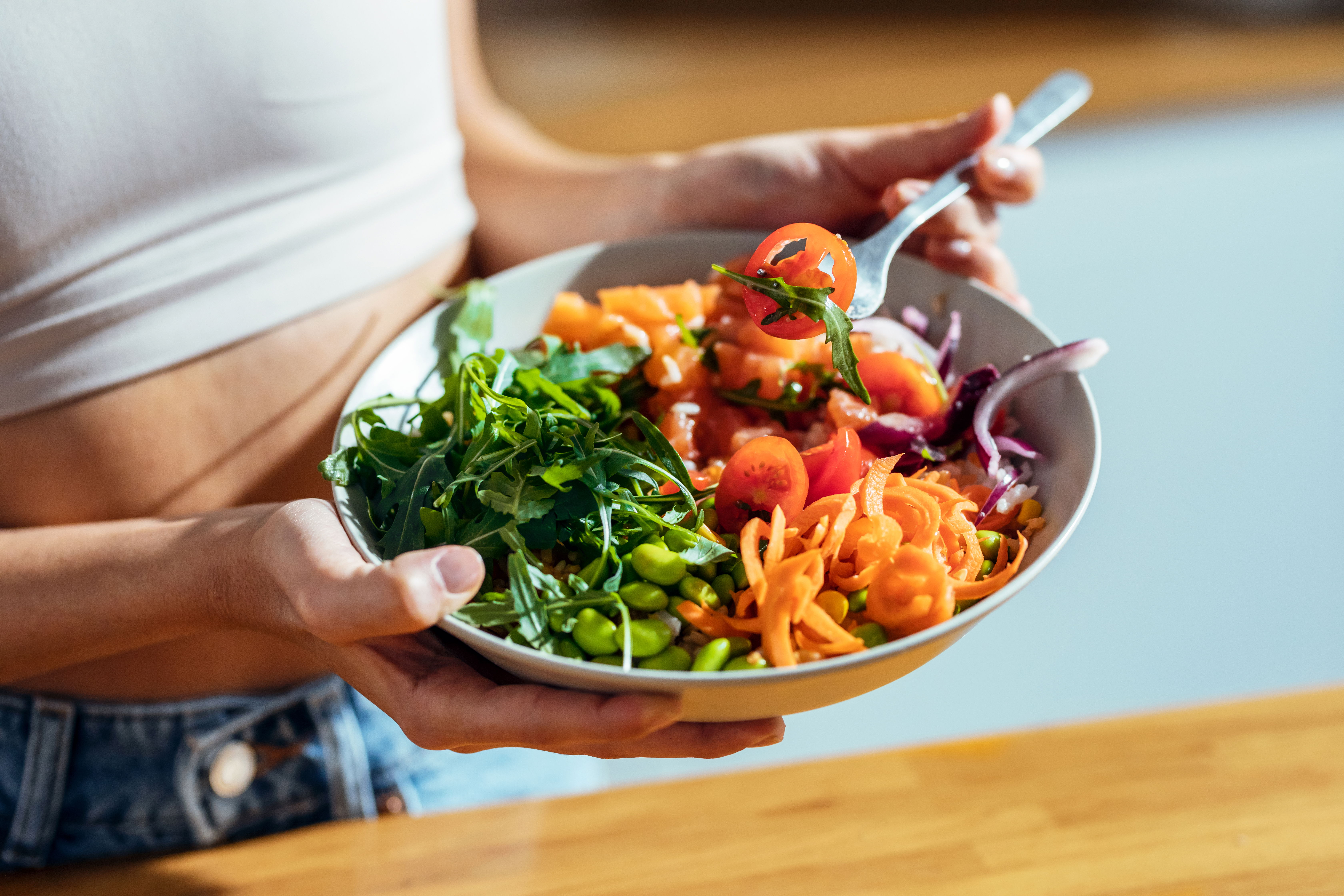 Diets help you lose weight and, consequently, improve your health and physical fitness. Consult a nutritionist before starting a diet.
Diets help you lose weight and, consequently, improve your health and physical fitness. Consult a nutritionist before starting a diet.10th) Practice physical activity
 It is common sense that physical activity and diet (with proper professional supervision) play an important role in recovering from illnesses and/or reducing symptoms.
It is common sense that physical activity and diet (with proper professional supervision) play an important role in recovering from illnesses and/or reducing symptoms.GOD BLESS US!

Comments